Supporters of the rector in the field of education and research
Who are UU's special deans and what do they do?
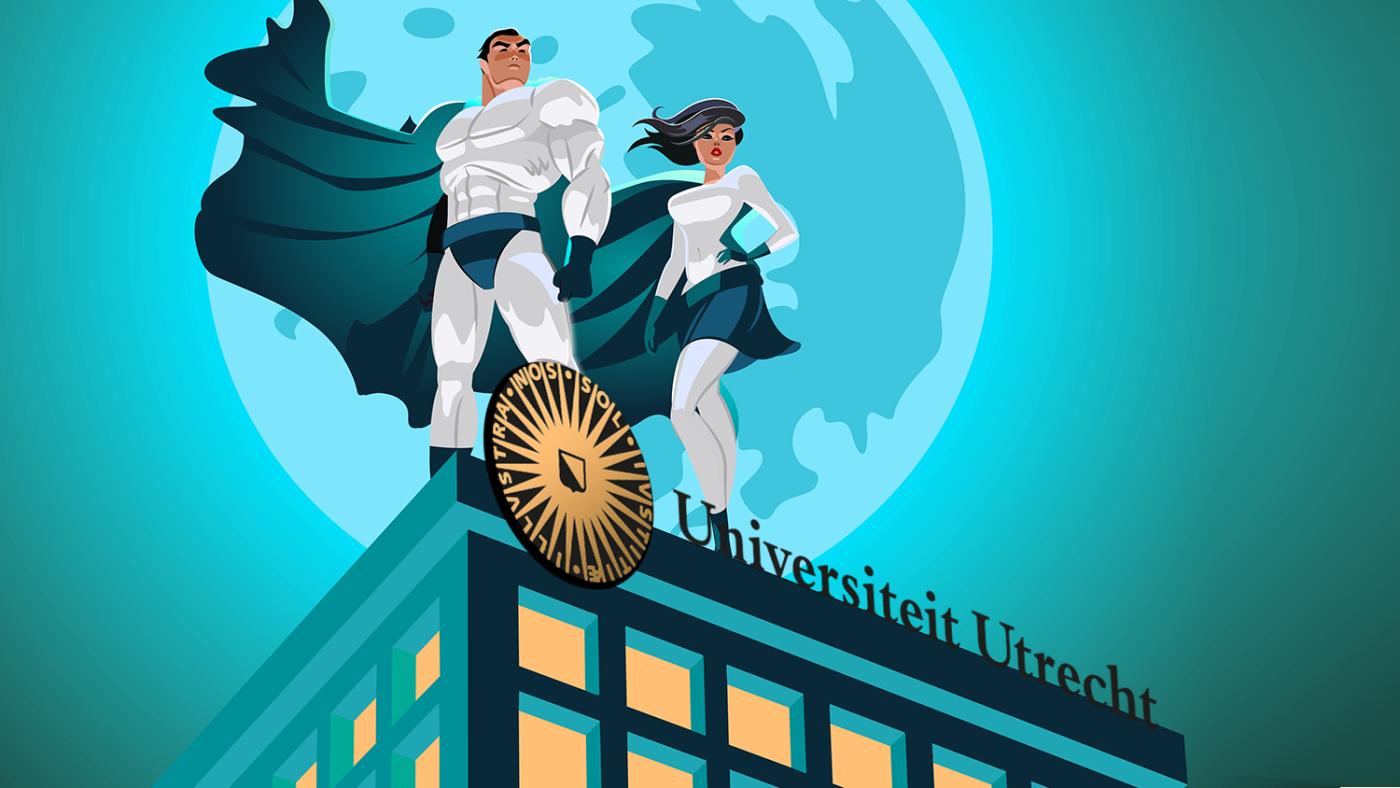
At a committee meeting of the University Council, held in November, one of the student members worriedly asked the rector how he was doing. “You’ve had this job for a while, have you noticed that the last few years have been getting more difficult?”
Henk Kummeling had no choice but to thank the student for the question. He agreed that the tasks of the Executive Board are constantly increasing due to pressure (societal and otherwise) for the university to make progress in many areas, both in terms of education and research: diversity policy, internationalisation, open science, the professionalisation of teachers, and mental health support for students are but a few examples.
The rector and his colleagues on the board are unable to do it all. “That’s why I’m glad we have vice-rectors and deans who are responsible for executing specific policy topics,” says Kummeling. The rector remains responsible for these subjects, however. The decisions about the best course of action are made by the entire Executive Board.
More people in the UU community had noticed an increase in the number of deans. A while ago, DUB received a question from a reader about how transparent the appointment for these positions is. “It's pretty common for people to be appointed to certain positions even though there was no vacancy to begin with. What’s up with that?”
This question prompted DUB to take a look at who these deans and vice-rectors are, what tasks they perform, and how they have become such figureheads for specific topics.
Vice-rectors
Henk Kummeling explains how the idea came about. “A few years ago, we appointed two vice-rectors. Both have the main task of representing UU in networks of European universities, such as Leru and the Coïmbra group. Over the past decade, UU has been playing a leading role in these cooperations. Initially, this position was held by Wiljan van den Akker, the former dean of the Faculty of Humanities, who would attend the meetings on behalf of UU. He was succeeded by Frank Miedema, who was also chair of UU’s Open Science programme. Prior to that, Miedema served as Dean of the Faculty of Medicine and caused a furore with the Science in Transition movement.
Miedema retired in September 2023 and his position will be taken over in June by Ted Sanders, a Professor of Language Proficiency who also serves as vice-dean of Research and Impact at the Faculty of Humanities. Aside from his role as vice-dean, Sanders is the chair of the Graduate Committee, which oversees the graduation of PhD candidates in the Graduate Schools and advises the rector on PhD policy. This combination of tasks was specifically chosen because, as a vice-rector, Sanders will take care of developing young researchers and quality assurance research.
The other vice-rector focuses on education and educational innovation. That task is currently carried out by Manon Kluijtmans, a Professor of Education in Health Care who was, until recently, director of UU’s Centre of Academic Teaching. Together with Miedema and Kummeling, she wrote the book The University in Transition (available in Dutch only, Ed.).
In addition to these two vice-rectors, there are also many specific deans. Deans are a kind of quartermasters, people who take the lead in setting up and guiding new UU policy. Think, for example, of diversity policies or policy for stimulating more interdisciplinary education. The English term "dean" was chosen because of its status, but it cannot be translated to the Dutch decaan because they would be confused with the deans (decanen) that each faculty has.
Open Science Chief
Until recently, there was no list of these deans on UU's website, but now there is (in Dutch only, Ed.). The list will have to be kept up to date because these are temporary positions. Kummeling: “We think it’s a good thing that a special theme is being given extra attention at the university. After we decide on a theme, we look for someone with authority who can take on such a task. Kummeling immediately distinguishes between ‘permanent’ positions and ‘project’ positions. If it’s a permanent position, then there will simply be a procedure with an advertisement for which interested parties can apply. For temporary positions, we will look for a suitable scientist. Before we ask someone, we check whether that person also has sufficient support by making inquiries within the university community.”
For example, the appointment of Bald de Vries as academic director of the Centre of Academic Teaching was a procedure to which interested parties could apply. It is a part-time position, for an indefinite period. Chief Open Science Paul Boselie, successor to Frank Miedema, has a temporary position for which the most logical candidate was sought. In recent years, Boselie has been intensely involved in the Recognition and Rewards and Open Science movements within the university. He now has three years to evaluate the Open Science programme and come up with plans to initiate a follow-up. “Practice what you preach”, he says. He also wants to develop new open science projects, including one for beginning academics. He will also represent UU abroad in this field.
In addition, UU currently has six other deans who work on a specific topic for a certain period, usually four years.
John de Wit, Diversity dean: ‘Towards a diversely skilled organization’
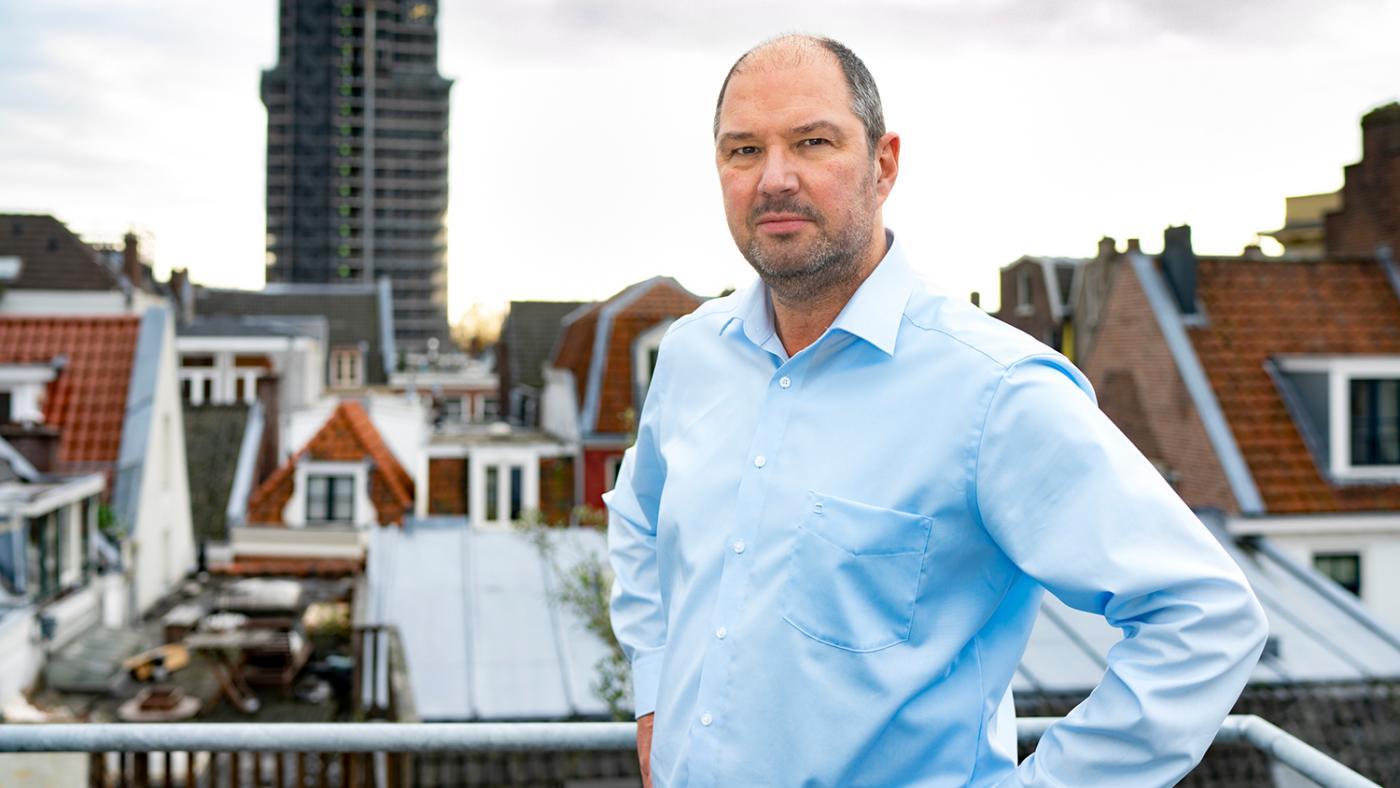
Dean John de Wit. Photo: Ivar Pel
As of September 2023, John de Wit, Professor of Interdisciplinary Social Sciences, has been appointed Diversity Dean. He took over from Janneke Plantenga, the former dean at the Faculty of Law, Economics and Governance. The rector asked him to take the position. “My main task is to give substance to the university’s ambitions in the field of Equality, Diversity and Inclusion (EDI). I am the chairman of the EDI steering committee that drafted the EDI plan and stimulates and monitors its implementation.”
De Wit thinks that there is room for improvement when it comes to raising awareness of the importance of diversity. EDI also wants to ensure that everyone feels truly welcome at UU, even though everyone perceives the world differently. “My ultimate wish is a diversely skilled organization. By this, I mean an organisational culture in which the mixture - and interaction between - diverse values, experiences, worlds, and political beliefs are stimulated to facilitate mutual understanding.”
Specifically, he wants UU to become more attractive to first-generation students and staff (especially to people who have been educated at more practical institutions instead of research universities), people with a non-Western migration background (and people of colour more generally, because those who have lived here for generations are also underrepresented), and disabled people, for whom UU's buildings are often inaccessible. In his view, the representation of women in leadership positions and roles still needs to be strengthened and there is still a lot to be done to include LGBTI colleagues.
He hopes that his greatest success is yet to come, but acknowledges that tangible results have been achieved at EDI such as courses, a more inclusive use of pronouns, activities around International Women’s Day and coming out day, a toolkit to make the curriculum more inclusive, and a new approach to make the intake of students more diverse.
Iris van der Tuin, Dean of Interdisciplinary Education: "Interdisciplinary education challenges students to take a broader view"
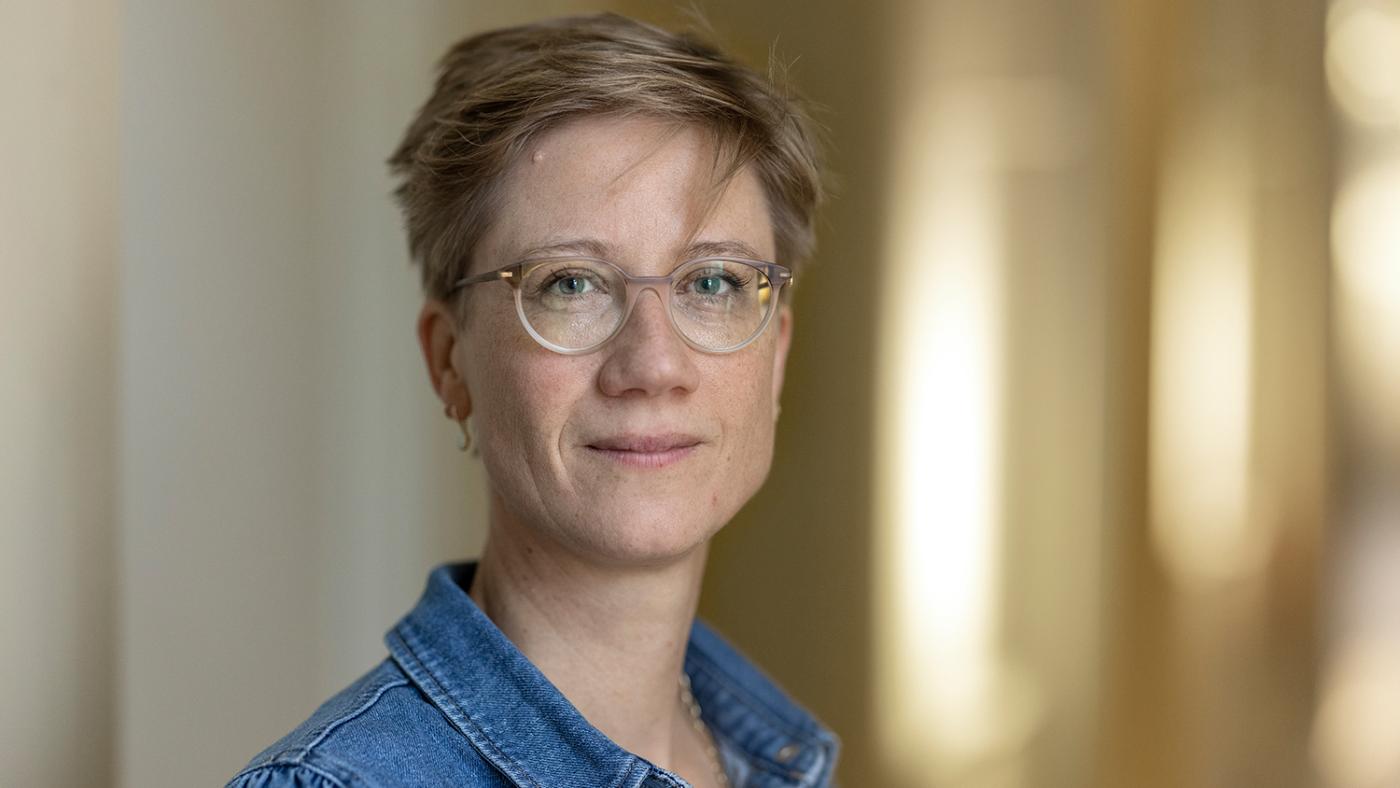
Dean Iris van der Tuin. Photo: Ed van Rijswijk, UU
Iris van der Tuin is a Professor of Cultural Studies and Vice-Dean of Education at the Faculty of Humanities. One and a half days a week, she also works as Dean of Interdisciplinary Education. “I was asked by the rector to do this when I was the director of education at Liberal Arts & Sciences and part of the National Interdisciplinary Education network. “ I work together with Programme Manager Joki van der Poel. Right from the start, we noticed that we have a shared passion for interdisciplinary education. In interdisciplinary education, students look beyond the boundaries of their discipline and are therefore encouraged to reflect on their field. Such reflection is of great value during and after their studies, for example when students have to write a motivation letter for an internship, follow-up study or job.”
As Dean of Interdisciplinary Education, Van der Tuin’s task is to increase the range of services available at the entire university, both quantitatively and qualitatively, for four years. “That means more teachers and students participating in it, but also that it needs to be better designed and more sustainably funded, staffed and embedded.”
In her view, her biggest success to date, she says, is the concept of "disciplined interdisciplinarity" that her team introduced at the university. “This specific interpretation of interdisciplinary education assumes that academic disciplines are essential in interdisciplinary collaboration. The disciplines and interdisciplinarity support each other and their collaboration challenges the student to take a broader view. We explain that in a video (in Dutch, Ed.).”
James Kennedy, Dean of Community Engaged Learning: University and society learning to understand each other better
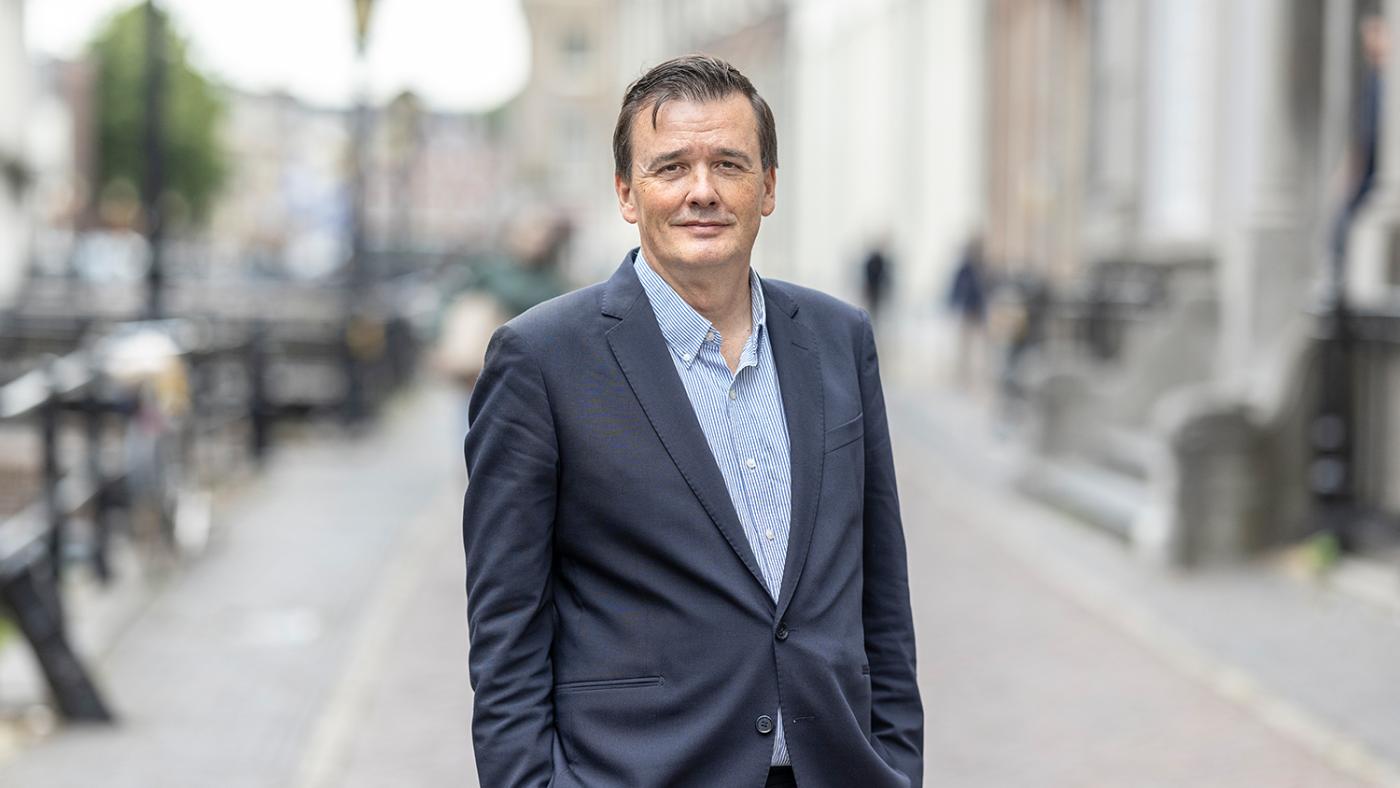
Dean James Kennedy. Photo: Ed van Rijswijk, UU
The choice for James Kennedy, Professor of Modern Dutch History and former dean of University College Utrecht, was an obvious one. He was chair of the Community Engaged Learning task force, starting in 2018, which he applied to UCU as its dean. “When UU wanted to create a special education programme on this theme in 2022, I was asked if I wanted to take it for one day a week.”
According to Kennedy, the importance of Community Engaged Learning is encouraging students to think about their future responsibility in society. Students can gain insights by collaborating with societal partners. The second goal is broader. Through collaborations, the university and the rest of society can learn to understand each other better.
As dean of Community Engaged Learning, he develops a vision of how the university can take social responsibility by working together with social partners in education. How should a faculty approach that and how can they support the lecturers to do that? “Our biggest success so far is that we have a good programme council with ambassadors in several faculties to embed Community Engaged Learning in education. Great courses have been developed and there is a fund that motivated teachers can call on. It's going well, given the great diversity of issues and partners we work with.”
Hans de Bresser, Dean of Regional Education: "More teachers and better equality of opportunity in education"
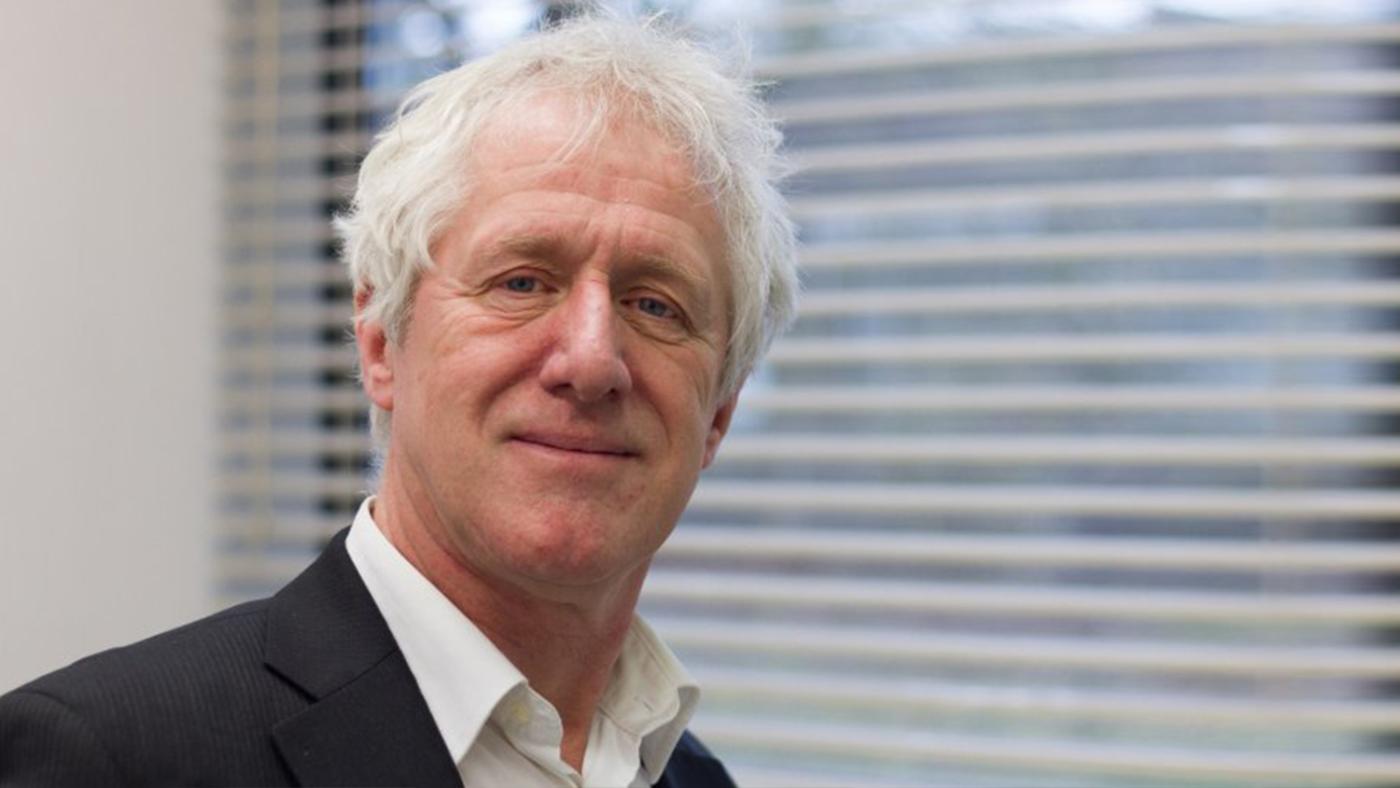
Dean Hans de Bresser. Photo: Utrecht University
The Strategic Plan 2020-2025 states that Utrecht University, together with the University of Applied Sciences and other educational partners in the city and region of Utrecht, aims to help reduce the teacher shortage and increase the accessibility of education. Hans de Bresser, Professor of Teaching & Learning Environment in Earth Sciences, was asked to become Dean of Regional Education in September 2022. “As a former vice-dean of education at the Faculty of Geosciences, I had already gained a lot of knowledge and experience in the broad field of education. I also had to deal with the allocation of funds for ongoing UU educational projects in the region. I dedicate one day a week to this.”
De Bresser was surprised by the many activities that existed within the university, but also shocked at how fragmented education is. “To tackle this, we have set up a work organisation with the University of Applied Sciences in Utrecht and other educational partners in the city and region of Utrecht. It has three pillars: training and professionalising teachers, research into education (and youth), and the long learning pathway: equality of opportunity, talent development and science literacy. Each pillar has a driving force.”
They’ve already had some success, says De Bresser. “We organized two successful 'brainstorm dinners', one with UU staff who collaborate in this area and one with external partners. I notice that our educational partners attribute a very important role to UU as a repository for knowledge in the field of education, as a partner for the co-creation of new knowledge, as a teacher-trainer, and provider of in-service training, and as a connector. The university has a significant role to play in regional education and can expand this even further.”
Stephanie Rosenkranz, Dean of Honours Education: "Honours education is more and more about social issues"
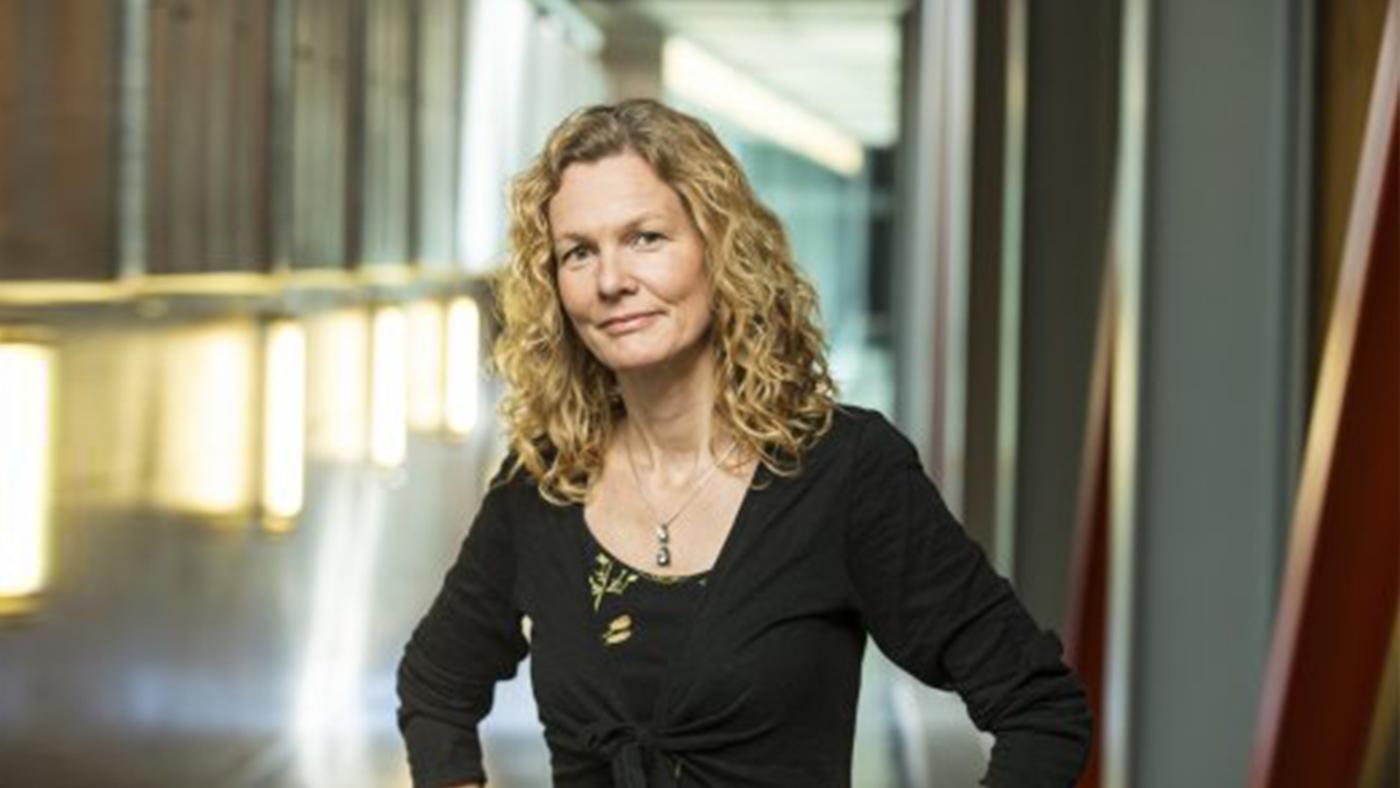
Dean Stephanie Rosenkranz. Photo: UU
Honours education at UU is not a temporary project. It’s been around for a long time. Nevertheless, the Executive Board has decided to appoint a special dean for this type of education, for four years. Currently, the position is occupied by Stephanie Rosenkranz, Professor of Microeconomics. “I started in 2021. I was asked to apply for the position and then I was appointed. I was already an honours coordinator for the Economics programme."
As Dean of Honours Education, Rosenkranz is tasked with developing a vision for honours education at both the faculty and the central level. “For example, we want to make honours education more accessible. How to do that? It is also selective, something you have to take in addition to regular education. One of the things we do in the first year is to approach not only students with high grades but also students who stand out because of their input and motivation.”
Rosenkranz also sees another shift in honours education. “In the beginning, the emphasis was very much on improving students’ CVs. Now the emphasis is more on self-development: expanding their horizons, discovering what they can do in the world, and thinking about fundamental questions. It is more and more about personal development and social issues, only from an academic perspective. For example, we have a course on navigating times of uncertainty, where we analyse the uncertainties of our time and let the students think about how they can deal with them.”
Dean Wieger Bakker, dean of Lifelong Learning: "Professionals shouldn't stop learning after obtaining a university degree"
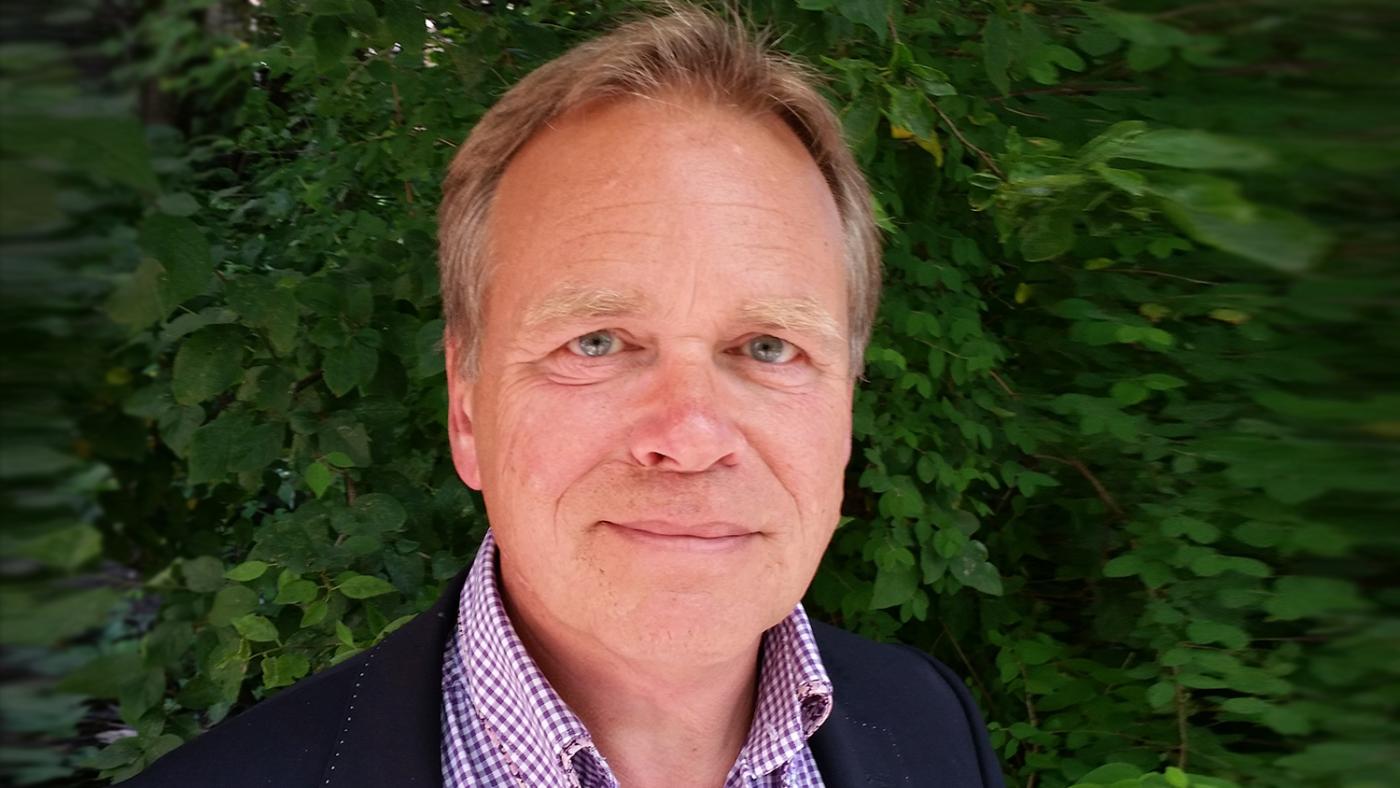
Dean Wieger Bakker. Photo: UU
Wieger Bakker, Professor of Society-Oriented Higher Education at the Department of Governance and Organisational Science, was appointed Dean of Lifelong Learning in 2018. Initially, he was supposed to occupy the post for 2,5 years, but he will remain in the position until 2025. His appointment stemmed from the university’s 2016 Strategic Plan, which stated that UU aims to have an up-to-date and attractive offer in the field of lifelong learning by 2020. In other words, courses to expand and refresh the knowledge of alumni and professionals.
“As a university, we don't only want to offer programmes for students, but also for professionals interested in having the most up-to-date information,” explains Bakker. He is proud that lifelong learning is now being taken seriously by all faculties thanks to open courses and internal training, but also because scientists are asked to share their knowledge on social networks. “Education has been taken very seriously, with its own directors and strict quality requirements. In addition, things have been broadening. We now collaborate with other universities and educational institutions and there is even a partnership at the European level. As a dean, I work with the faculties and all those partnerships at the same time,” Bakker says.
The university has collaborated with other organisations in a national LLO Catalyst (Lifelong Development) for which the government has allocated funding. "This enables us to collaborate with other educational institutions, companies and social organisations to contribute to solving social problems." Bakker dedicates about three days a week to these tasks, but he hopes that lifelong learning will be embedded in the university by 2025.